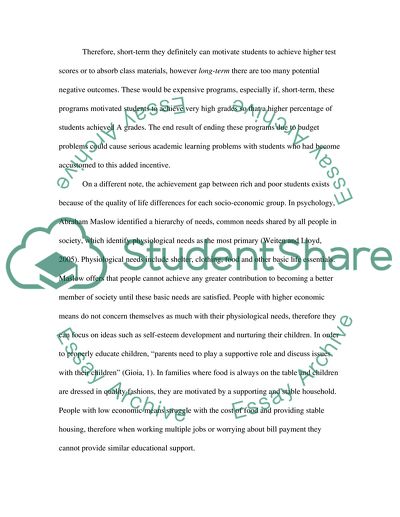Cite this document
(“Cash for Grades Research Project Essay Example | Topics and Well Written Essays - 1500 words”, n.d.)
Cash for Grades Research Project Essay Example | Topics and Well Written Essays - 1500 words. Retrieved from https://studentshare.org/miscellaneous/1560588-cash-for-grades-research-project
Cash for Grades Research Project Essay Example | Topics and Well Written Essays - 1500 words. Retrieved from https://studentshare.org/miscellaneous/1560588-cash-for-grades-research-project
(Cash for Grades Research Project Essay Example | Topics and Well Written Essays - 1500 Words)
Cash for Grades Research Project Essay Example | Topics and Well Written Essays - 1500 Words. https://studentshare.org/miscellaneous/1560588-cash-for-grades-research-project.
Cash for Grades Research Project Essay Example | Topics and Well Written Essays - 1500 Words. https://studentshare.org/miscellaneous/1560588-cash-for-grades-research-project.
“Cash for Grades Research Project Essay Example | Topics and Well Written Essays - 1500 Words”, n.d. https://studentshare.org/miscellaneous/1560588-cash-for-grades-research-project.


